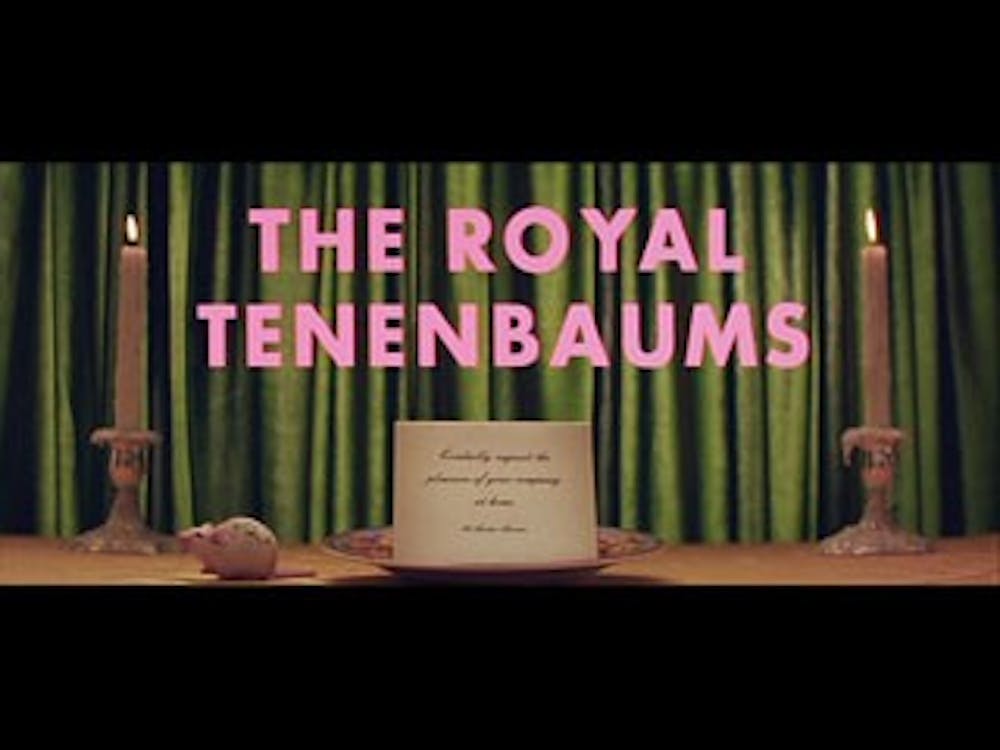Wes Anderson chooses his music carefully. One of the most beautiful, complex and frustrating elements of his films is the ambiguity of the time period. We are never exactly sure whether we are actually in the '60s or '70s or if all of the characters are just hipsters celebrating Movember and being really skinny. Anderson is able to play with the audience’s ability to recognize certain aesthetic qualities by replacing them with figures of his own imagination. Everything is set to the backdrop of a wacky soundtrack. In "The Royal Tenenbaums," we are thrown around between Andy Warhol’s Velvet Underground, a hippy-dippy '70s childhood with Paul Simon, and depressing Portland '90s tunes with Elliott Smith. While the songs do not make a whole lot of sense holistically—each one is equally poignant, set to those scenes you will always replay in your head every time you hear it.
Paul Simon’s music is childhood-incarnate. It is California sunshine and running through a field holding hands with your best friend. It makes us feel carefree and young. “Me and Julio Down by the Schoolyard” is an undeniable pick-me-up. It fits perfectly with the unforgettable scenes where the Mr. Royal Tenenbaum has a fun-filled day with his two sheltered savant grandsons who wear matching tracksuits, Uzi and Ari. What kind of grandpa takes his grandsons out for a city excursion to race go-carts, shoplift and bet on dog fights? Wes Anderson’s grandpa does. And kind of wish our grandpa did too… Why do Wes Anderson childhoods get to be so much cooler?
Obviously, not all of Wes’s imagination-fueled scenes are lighthearted—in fact, most touch on the more serious, heart–wrenching feelings like any Hollywood movie does. Anderson’s choice of songs is just way cooler. “These Days,” by the Velvet Underground and Nico is one of those rare songs that blinds us to everything but the real point of the song and the moment; Love. It is ambiguous, too, with Nico always sounding like a man but still really beautiful and only one constant guitar riff, maybe some backup strings. What makes the song so special, however, is when it plays as Margot steps off a coach bus and walks up to Ritchie. Margot and Ritchie happen to be grown adults and adopted siblings, but this could matter less when we see the way Ritchie gazes at her signature moody-girl eye makeup and full-length fur coat. It is makes us kind of fall in love with her too even though she hates everything and has a wooden finger and never leaves the bathtub (Manic Pixie Dream Girl, sigh). It makes us feel nostalgic even though we are not sure exactly what kind of love we are nostalgic for.
The most unforgettable, nerve tingling element of the film is when Anderson narrates Ritchie’s attempted razor-blade-to-the-wrists suicide with the words of the late Elliott Smith. At first when we are transported to the haunting blue bathroom and Elliott’s guitar starts strumming in, we get a little excited. Ritchie wets his face and begins lopping off his seventies porn star long beard and bowl-cut. Hello, a clean-shaven Luke Wilson! Then the quiet, sad song keeps going as we watch Ritchie take the blades to his veins and pass out on the tile floor. It is one of those human moments where everything feels kind of familiar and deserving of our empathy. We almost feel how much Ritchie loves Margot, and that is how Anderson does it.







